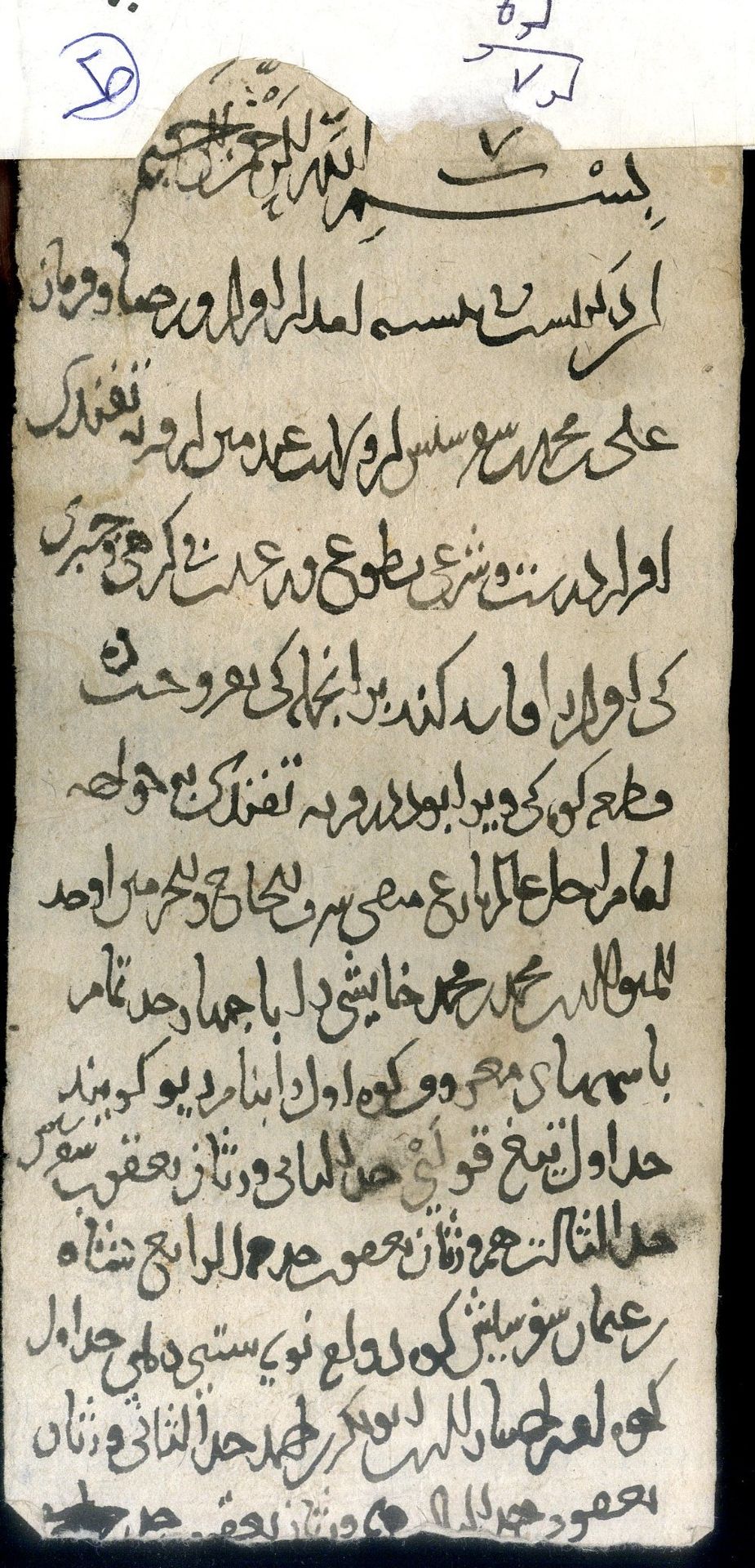1
In the name of God, the merciful and the compassionate.
2
This is a document that has been written based on the acknowledgement, agreement and request of
3
ʿAlī b. Muḥammad b. Safarsīsh from the region of Ghandamīn, from the village of Tufandī.
4
[This is] a valid and lawful acknowledgement, [made] wilfully and of his own volition and without coercion or force,
5
which would invalidate the acknowledgement. [He has acknowledged] the following: He has sold ten
6
parcels of mountain land which he owned in the village of Tufandī, to the khwāja, the
7
illustrious imām, the excellent and pious ʿālim, the pride of the pilgrims and the Two Shrines [of Mecca and Medina], the singular
8
[+/- 1] Muḥammad b. Muḥammad Khāyishī. [Each of the ten parcels has] four complete boundaries with
9
known names. The first mountain is called Dīw, [and]
10
its first boundary is Taygh-i Qūlay; the second boundary is [adjacent to the estate] of Yaʿqūb [b.] Safarsīsh’s heirs;
11
the third boundary [is] also [adjacent to the estate] of Yaʿqūb’s heirs; the fourth boundary is [adjacent to] [+ 1]
12
b. ʿUthmān [b.] Safarsīsh[‘s land]. The second mountain is Naw-i Yāstay-i[?] Dalmī[?], [and] its first boundary is
13
the mountain land belonging to amīr Ikhtiyār al-Dīn Abū Bakr b. Aḥmad; its second boundary [is adjacent to the estate of]
14
Yaʿqūb’s heirs; the third boundary [is] also [adjacent to the estate] of Yaʿqūb’s heirs; the fourth boundary …
